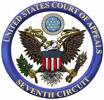Seventh Circuit Week in Review: Machine Guns and Cocaine (And What Thanksgiving Is Complete Without Those?)
 The Seventh Circuit had three new opinions in criminal cases in this holiday-shortened work week, with the government winning on all of the major issues in each appeal.
The Seventh Circuit had three new opinions in criminal cases in this holiday-shortened work week, with the government winning on all of the major issues in each appeal.
In the first, United States v. Carmel (No. 07-3906), the Seventh Circuit (per Judge Manion) affirmed the defendant’s conviction for possessing an unregistered machine gun in violation of 26 U.S.C. § 5861. In addition to raising some case-specific issues relating to a search warrant, the defendant also argued that § 5861 was invalid in light of 18 U.S.C. § 922(o), which criminalizes possession of machine guns. In essence, Carmel argued that § 5861, which punishes people for not registering their machine guns, makes no sense when § 922(o) effectively precludes registration. The Tenth Circuit bought this argument in United States v. Dalton, 960 F.2d 121 (10th Cir. 1992), but it was subsequently rejected in seven other circuits. And now the Seventh Circuit makes eight. It’s not clear to me, though, why the government would ever charge a defendant like Carmel under § 5861 when § 922(o) is also applicable and carries the same maximum penalty — why not render the Dalton issue moot by using § 922(o) exclusively in these cases?


